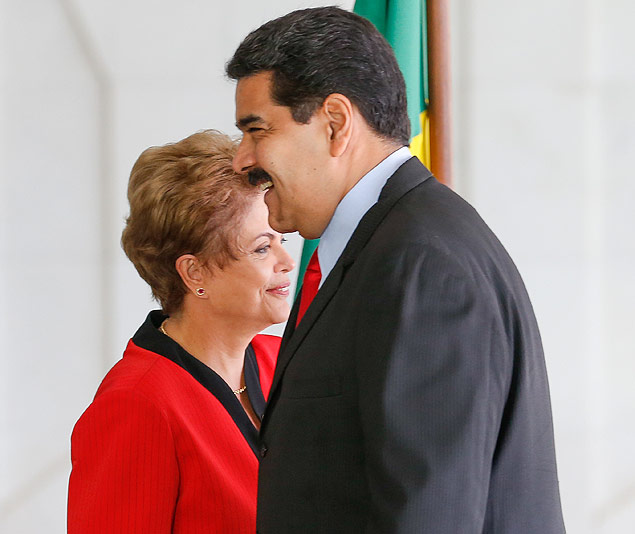Latest Photo Galleries
Brazilian Markets
12h03 Bovespa |
-0,14% | 129.028 |
16h43 Gold |
0,00% | 117 |
12h17 Dollar |
+0,39% | 5,0873 |
16h30 Euro |
+0,49% | 2,65250 |
ADVERTISING
Venezuela Does Not Comply with Mercosur Rules
11/04/2015 - 10h14
Advertising
SAMY ADGHIRNI
FROM CARACAS
Three years after joining Mercosur, Venezuela still has not met most of its obligations and accession commitments.
The apparent reluctance to adapt to common standards strengthens the view that Caracas has always bet more on the South American bloc as a political platform than as an area of free movement of goods, services and people.
Venezuela's Treaty of Accession, which faced resistance and had Brazil as guarantor, has set August 2016 as deadline to meet all the requirements. However, people involved in the process say that is unlike to happen in time.
When it comes to customs, Venezuela still has to incorporate the ACE-18 agreement, which is Mercosur's cornerstone.
While it is still being negotiated, many transactions between Venezuela and other member countries are made based on an agreement which interestingly still considers Venezuela part of the Andean Community (CAN), even though it has left the bloc in 2006.
Venezuela has not either acceded to the protocol for free trade in services or participates in the talks on a future free trade area between Mercosur and the European Union (EU).
The Chavista government says it defends the "integration of peoples of Mercosur", but to this day it resists adopting two key requirements on free movement of persons.
The first is the Residency Agreement that allows citizens to live in any member country without much bureaucracy. The second is an agreement that establishes that formal work in member countries is counted as time of contribution to social security and retirement in the country of origin.
Mercosur's High Representative, Brazilian former congressman Doutor Rosinha, admits there are delays, but says he has received assurances that Caracas will strive to accelerate its full accession.
Venezuela also says that adaptation takes time. "Mercosur is not the EU. We have our own pace," says congressman from the ruling party Saúl Ortega, vice president of the Commission of Foreign Affairs of the National Assembly and president of Mercosur Parliament.
Critics however say the integration, according to Mercosur's liberal format, was never the country's priority. For President Hugo Chávez (1999-2013), joining the bloc was a way to legitimize his government internationally and strengthen the leftist wave sparked in Latin America with his ascension.
The delay is also seen as a reflection of the deep political and economic crisis.
Translated by JULIANA CALDERARI
Read the article in the original language
| Pedro Ladeira - 17.jul.2015/Folhapress | ||
 |
||
| Brazilian President Dilma Rousseff and Venezuelan President Nicolás Maduro |



